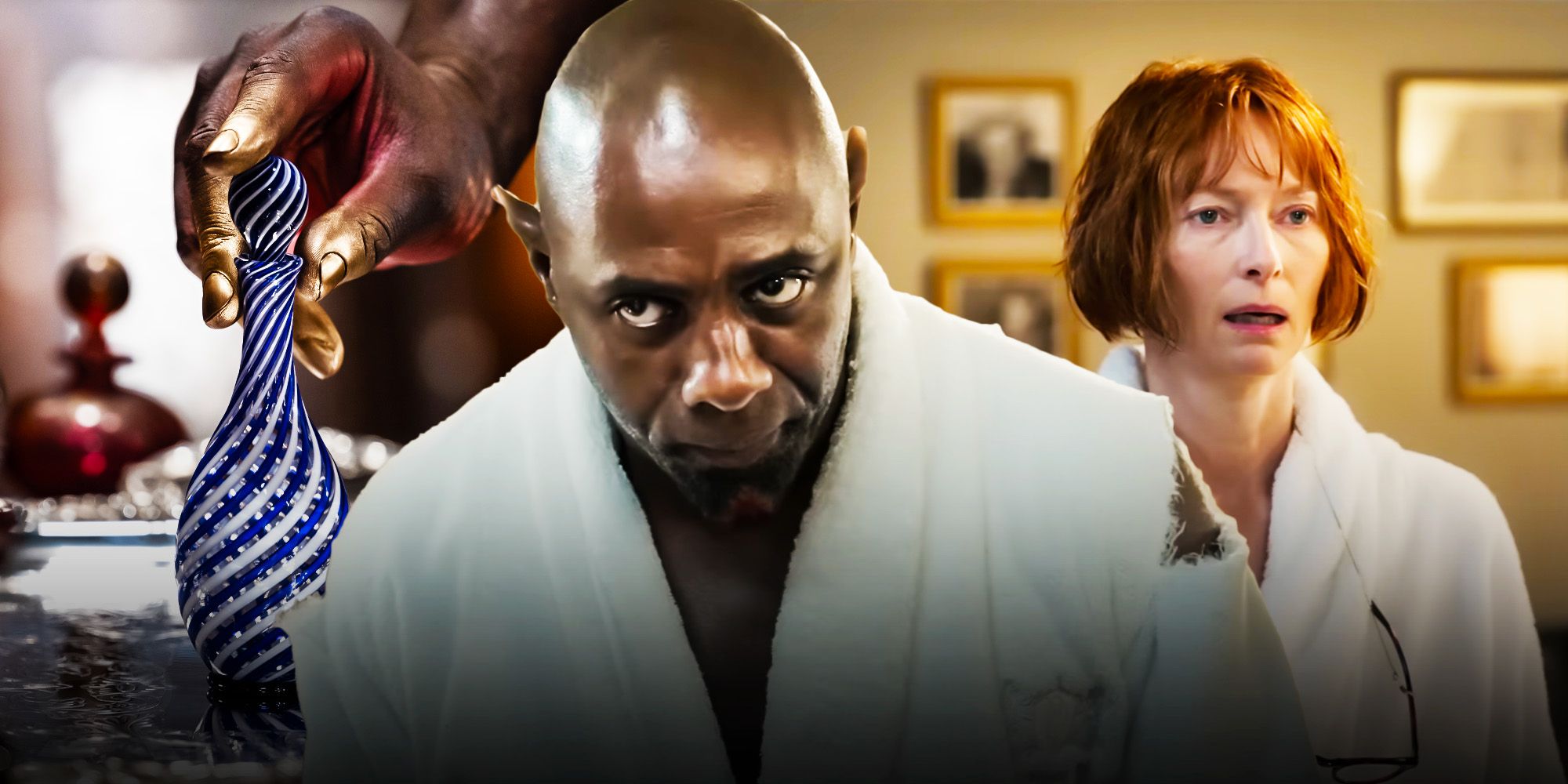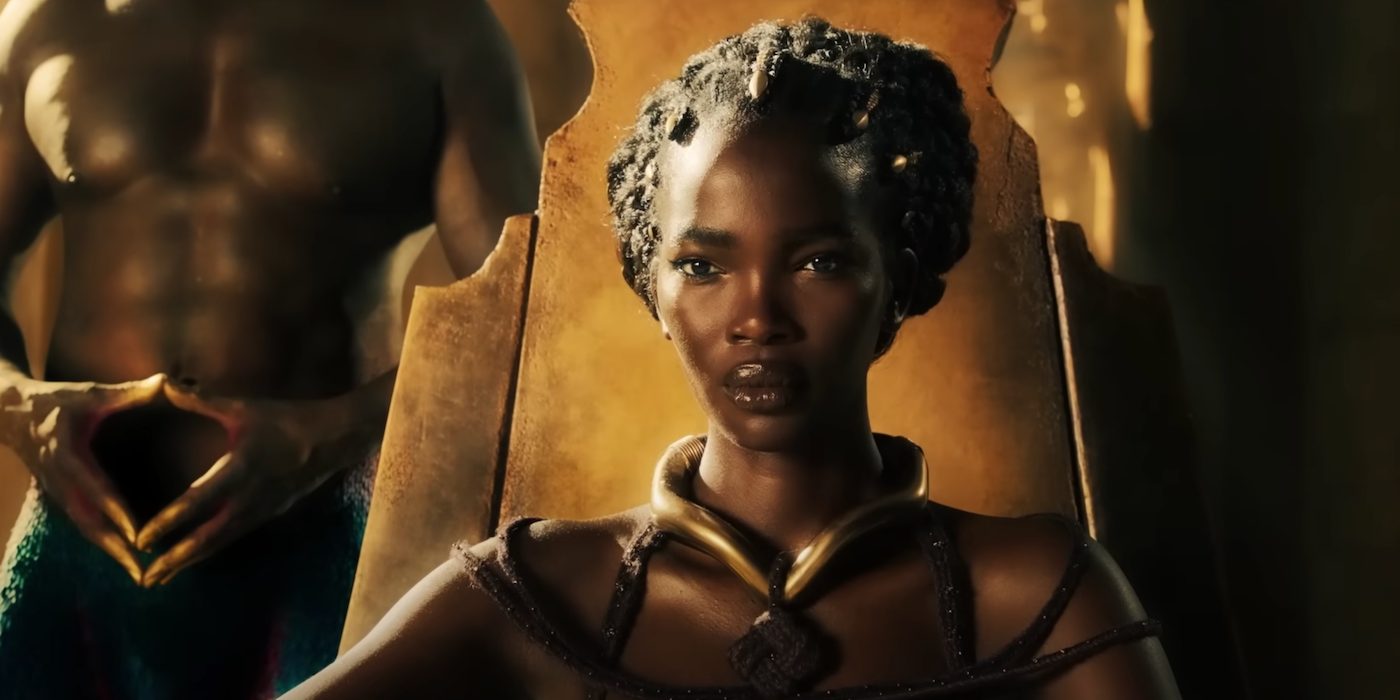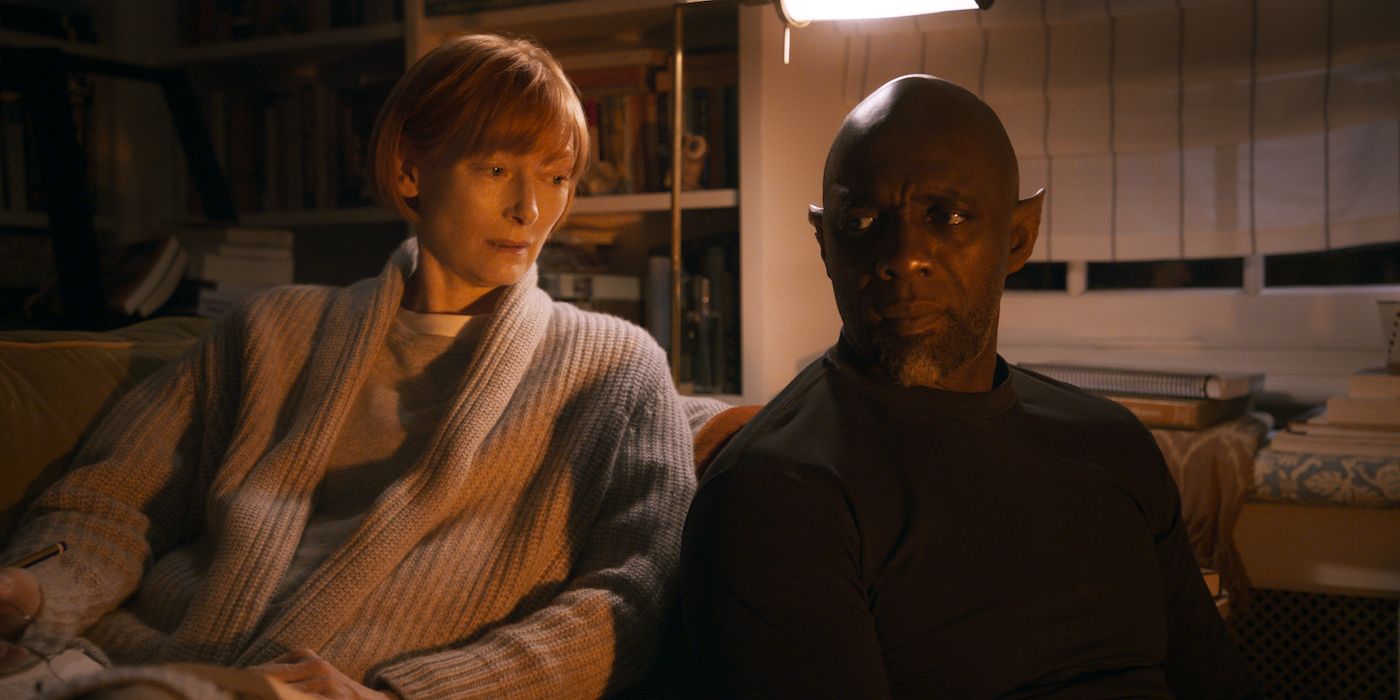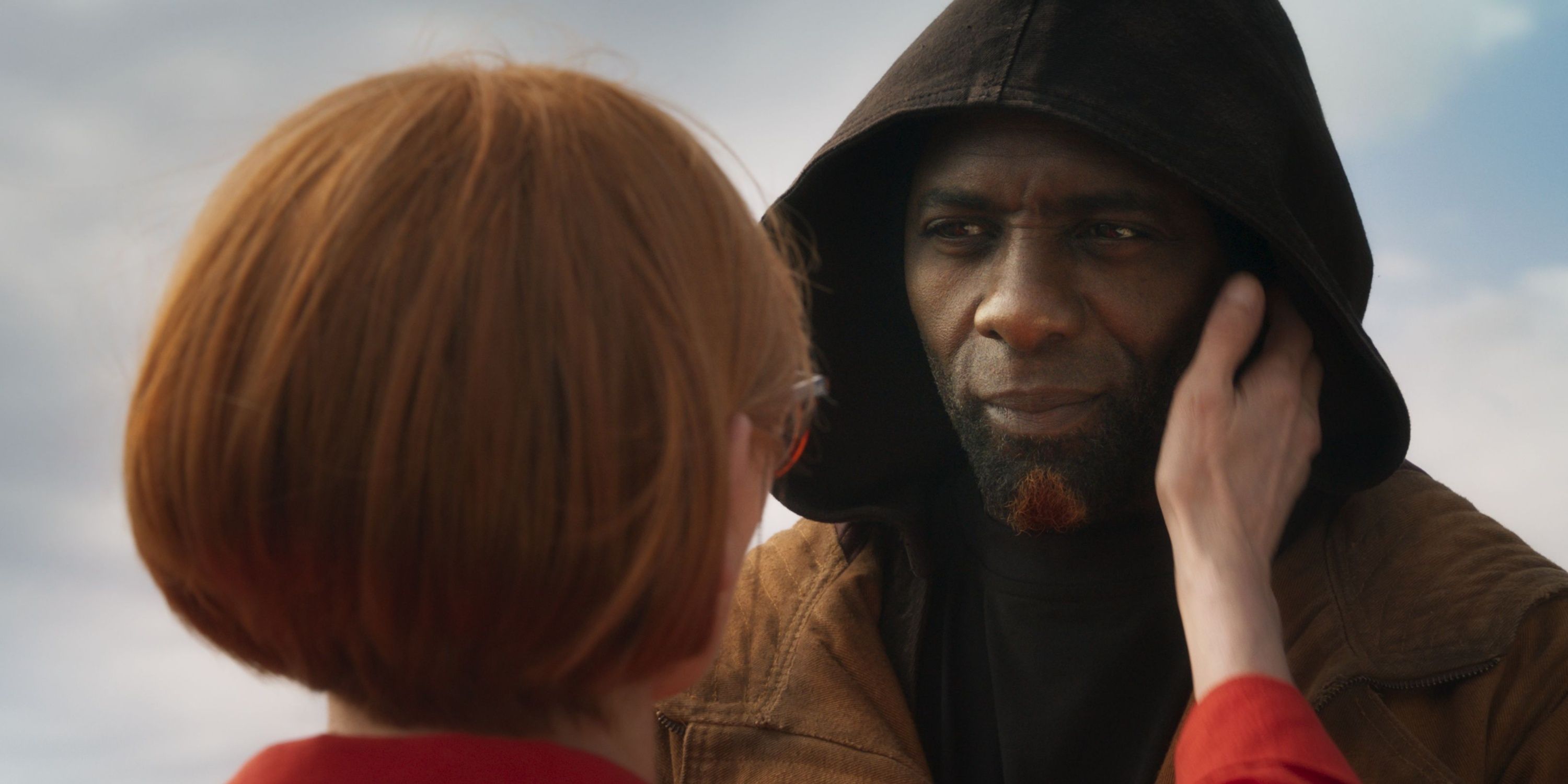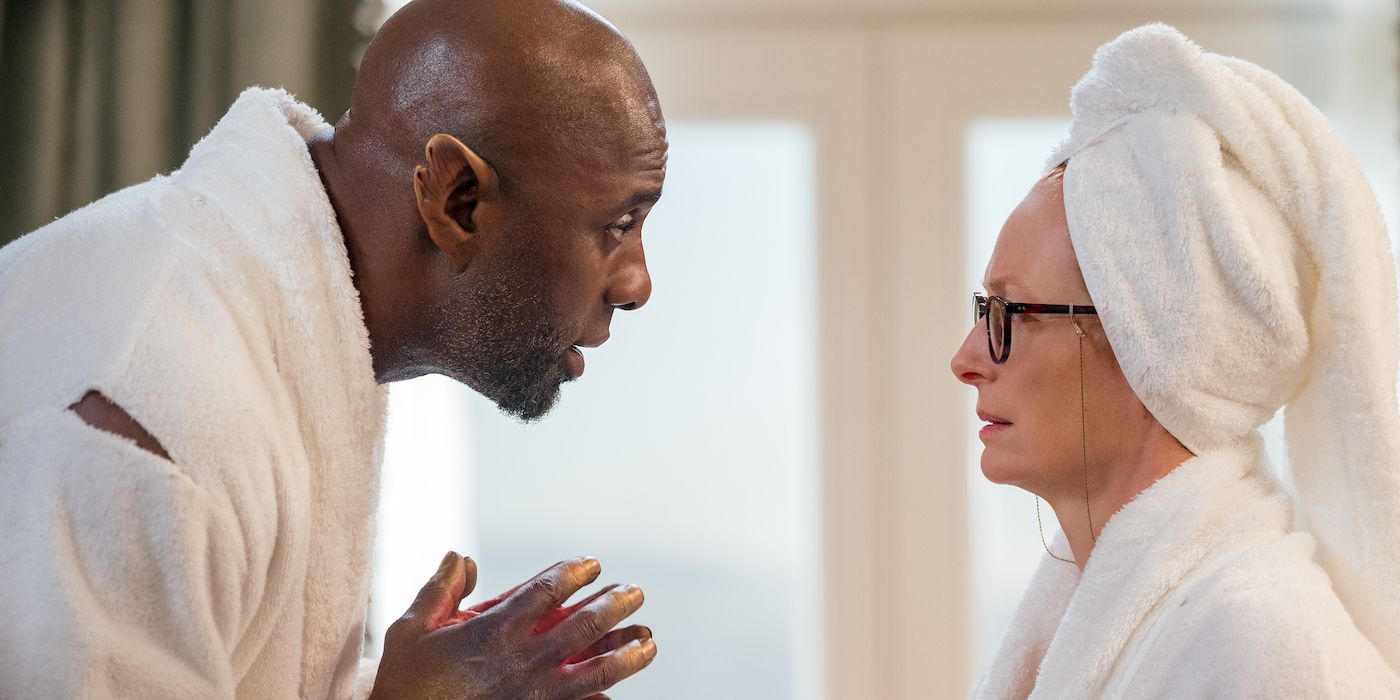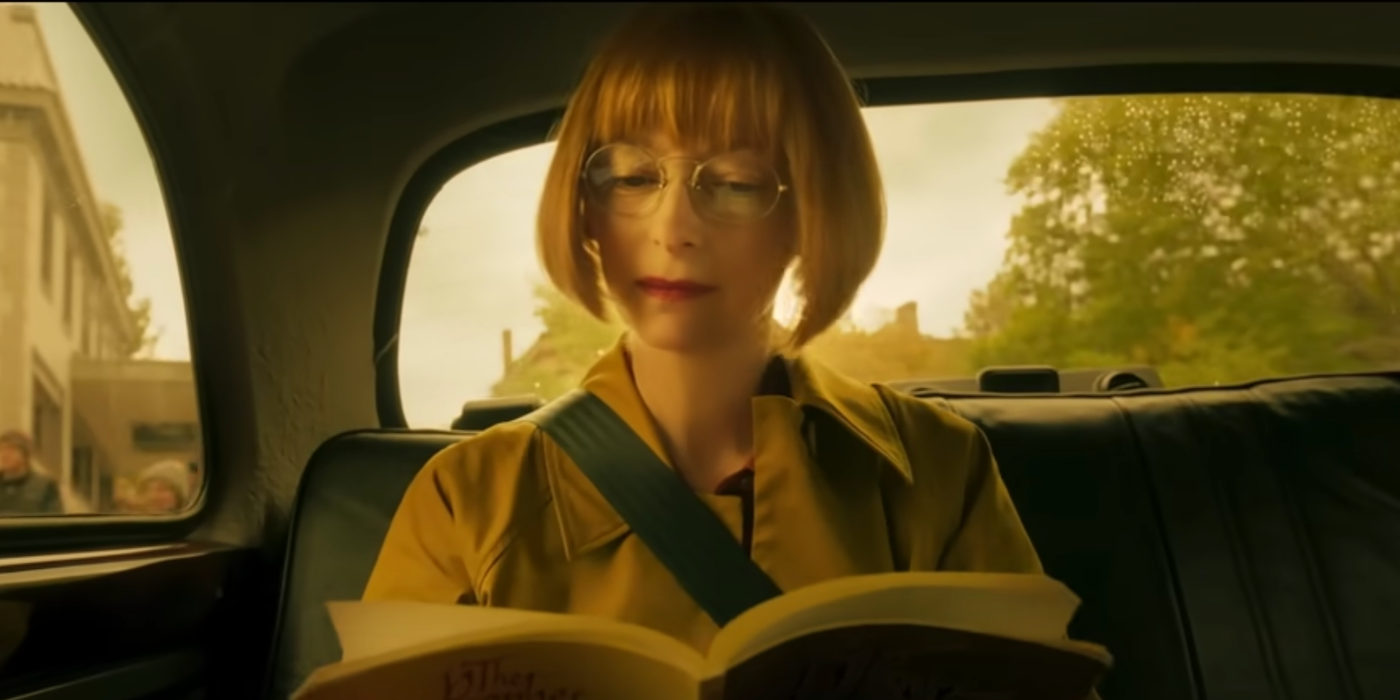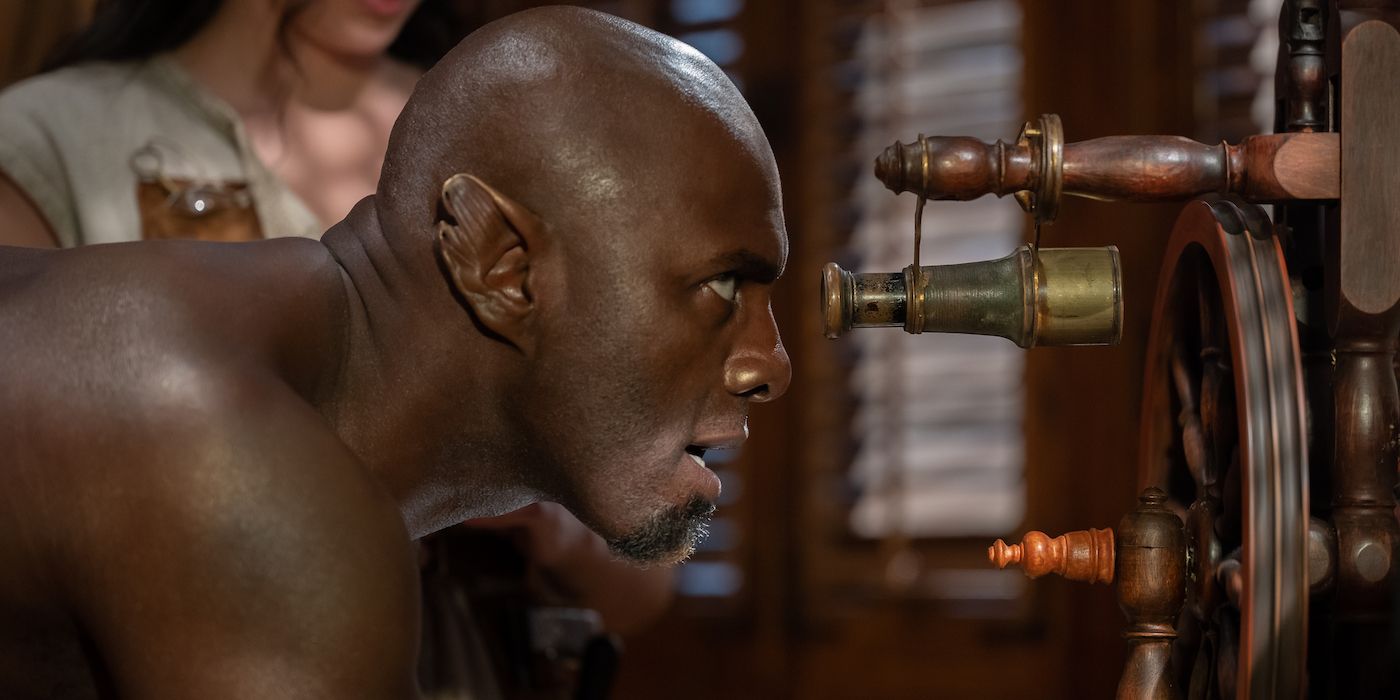Warning: This post contains MAJOR spoilers for Three Thousand Years of LongingThree Thousand Years of Longing ending helps explain the expansive and compelling story. Directed by Mad Max: Fury Road filmmaker George Miller, who co-wrote the screenplay with Augusta Gore, Three Thousand Years of Longing brings together two of Hollywood’s most notable actors: Idris Elba and Tilda Swinton. The film, which is based on The Djinn in the Nightingale’s Eye by A.S. Byatt, follows Alithea (Swinton) who finds an ancient artifact that unleashes a Djinn (Idris Elba) who tells his long history as he waits for her wishes. With the movie hitting Prime Video this month, there will be many viewers who will need the Three Thousand Years of Longing ending explained.
Three Thousand Years of Longing ends with Alithea making another wish — that the Djinn she’s come to love return to where he belongs, “wherever that may be.” The Djinn, who at first refuses to leave her side in London, eventually acquiesces. Three years later, Alithea has written a book called Three Thousand Years of Longing, detailing the Djinn’s stories and their relationship. And, while the Djinn did leave London behind, the film’s ending confirms that he returns to visit Alithea from time to time. George Miller’s film has a lot of nuances, layered with meaning and intrigue. The film ends on a happy note, but there is so much going on throughout that it begs to be dissected further.
Did The Characters In The Djinn’s Stories Actually Exist?
Many of the characters in Three Thousand Years of Longing the Djinn referenced in his stories did actually exist. Crucially, the majority of them were actually historical figures from the days of the Ottoman Empire. Mustafa was an Ottoman prince in the 16th century, and the heir to his father Sultan Suleiman, who did order that Mustafa be executed. It wasn’t because of a Djinn’s wish, however, but because of the turmoil between him and his father, as well as the tense internal politics of his household. In line with the events of Three Thousand Years of Longing, Mustafa was ultimately killed because Sultan Suleiman was convinced Mustafa would kill him.
Meanwhile, his stepmother, Hürrem, the influential wife of Sultan Suleiman, had made alliances to ensure her sons were favored as heirs, and Mustafa paid the price with his life. Similarly, Murad IV, his brother Ibrahim, and mother Kösem Sultan, were also real-life figures. Murad IV was a sultan of the Ottoman Empire in the 17th century. He was well-known for reinstating the empire’s power and for his brutality in battle. Kösem was regent until Murad took control of the throne. Following Murad’s death, Ibrahim, who was actually kept in a caged part of the palace as a potential successor, did indeed become sultan. Finally, King Solomon was an important historical figure and, while the Queen of Sheba’s existence is disputed, she is a key figure in Judaism, Islam, and Christianity.
Why Does Alithea Fall In Love With The Djinn?
Alithea loves stories and storytelling. While she was married once, Alithea is — by her own definition — a solitary creature by nature. As someone who has spent a lot of time on her own, and without forming deep relationships with others, Alithea doesn’t fully understand emotions and love. Alithea doesn’t even take her own life’s story very seriously, telling the Djinn the details of it rather quickly without relishing in it or diving deeper into any of the emotions she might have had throughout. She does, however, find emotion and love in the stories she reads and hears. Through storytelling, Alithea understands that which she doesn’t always feel, though Idris Elba’s character argues that everyone has a desire, even when they may not be aware of it.
The Djinn helps Alithea engage with emotion and the concept of love. Perhaps it’s because the Djinn is an outstanding storyteller or because Alithea feels the depth of the desire, heartache, and love Djinn once felt for the Queen of Sheba and Zefir. Alithea falls in love with the Djinn because she recognizes that he is also a solitary creature who is never with others for long. They can share in their solitude, and live in it together without being entirely alone. Alithea could learn more from the Djinn’s stories, as well as his desire for love as she feels the very emotions that evade her in other aspects of her life.
Why The Djinn Couldn’t Stay In London Despite Alithea’s Wish
Out of love, the Djinn accompanied Alithea to London, where he lived with her for a long while. While there, he learned more about humanity (and all they had accomplished) since he last disappeared into his bottle. However, London had a lot of electromagnetic frequencies — from cell phone and electricity towers to satellites and radio waves — that bombarded and disrupted the Djinn’s own. After all, the Djinn wasn’t human and was made up of electromagnetic particles. He could only take so much in a world that was constantly buzzing with such frequencies.
Despite her wish, Alithea couldn’t stand to see him in pain. She also realized it was selfish of her to ask him to remain because of a wish. That wasn’t what love was, and so she wished he would return to wherever he belonged. Although the Djinn and Alithea couldn’t be together in a traditional sense, the Djinn’s occasional return to London to see and spend time with Alithea conveyed how much they loved each other. Their companionship was now entirely voluntary, without the constraints created by the three wishes. The Djinn leaving London set him free and deepened the already strong bond between him and Alithea.
Were The Djinn & Enzo Real (Or Did Alithea Imagine Them?)
Early on in Three Thousand Years of Longing, Alithea tells the Djinn about Enzo, an imaginary-friend like being who appeared to her one day out of her need to imagine. Enzo, depicted as though a paper cut-out, was written down and drawn by Alithea. But, she grew to believe his existence was silly and burned everything she’d written about him down, erasing him from her life forever. Like Enzo, it’s possible the Djinn in Three Thousand Years of Longing isn’t real and is simply a figment of the main character’s imagination, born into existence because of her need to imagine. After all, she had been seeing various Djinns throughout the day, and it could be that she needed a story to explain them.
That said, the Djinn was likely real because Alithea made the introduction to her neighbors, who could obviously see the ancient being. If he wasn’t real, the Djinn probably wouldn’t have needed to wear a hood to cover the pointy ears that gave him away. And despite Enzo not being real, Alithea’s imaginary friend and the Djinn fulfilled her desire for companionship during a time she needed it.
Why Alithea Could See Djinn When Others Could Not (Is She A Djinn?)
Alithea sees otherwordly beings in Three Thousand Years of Longing before meeting the Djinn. Alithea first spotted Djinn at the airport and during her conference presentation. However, she could see them while others couldn’t. Buying the decorative bottle also teased that she somehow sensed the Djinn she would grow to love. The Djinn’s stories confirmed that those with Djinn blood, offspring of a Djinn and a human, could feel the presence of Djinn (even if they couldn’t always see them).
To that end, it’s possible Alithea was a Djinn descendant, though no clear evidence points to this. Crucially, Alithea wasn’t shown to have furry legs, which was always a clear sign of Djinn ancestry. Her being a Djinn could explain why she could see the other Djinn while others could not. However, Alithea’s love of stories, heightened sense of imagination, and proximity to Djinn lore in Istanbul is likely the reason she could suddenly see and feel Djinns’ presence.
The Real Meaning Of Three Thousand Years Of Longing’s Ending
Three Thousand Years of Longing‘s true meaning is ultimately about the power of storytelling. Through millennia, people have passed down narratives that have taught moral lessons, comforted, and entertained. Humanity has found deep meaning in storytelling and still does. Like Alithea, who can understand emotion through narratives from across various cultures, books, movies, and television shows can create empathy.
Storytelling is a way for people to understand things — themes, culture, others’ live experiences — that may not be a part of their own daily lives. It expands the mind, moves the imagination, and creates connections across borders and languages. Crucially, storytelling moves people emotionally, eliciting sorrow, anger, desire, empathy, hope, happiness, and even love. The power of stories is important to understanding others and the connection it has to the world and to human history as seen in Three Thousand Years of Longing.

